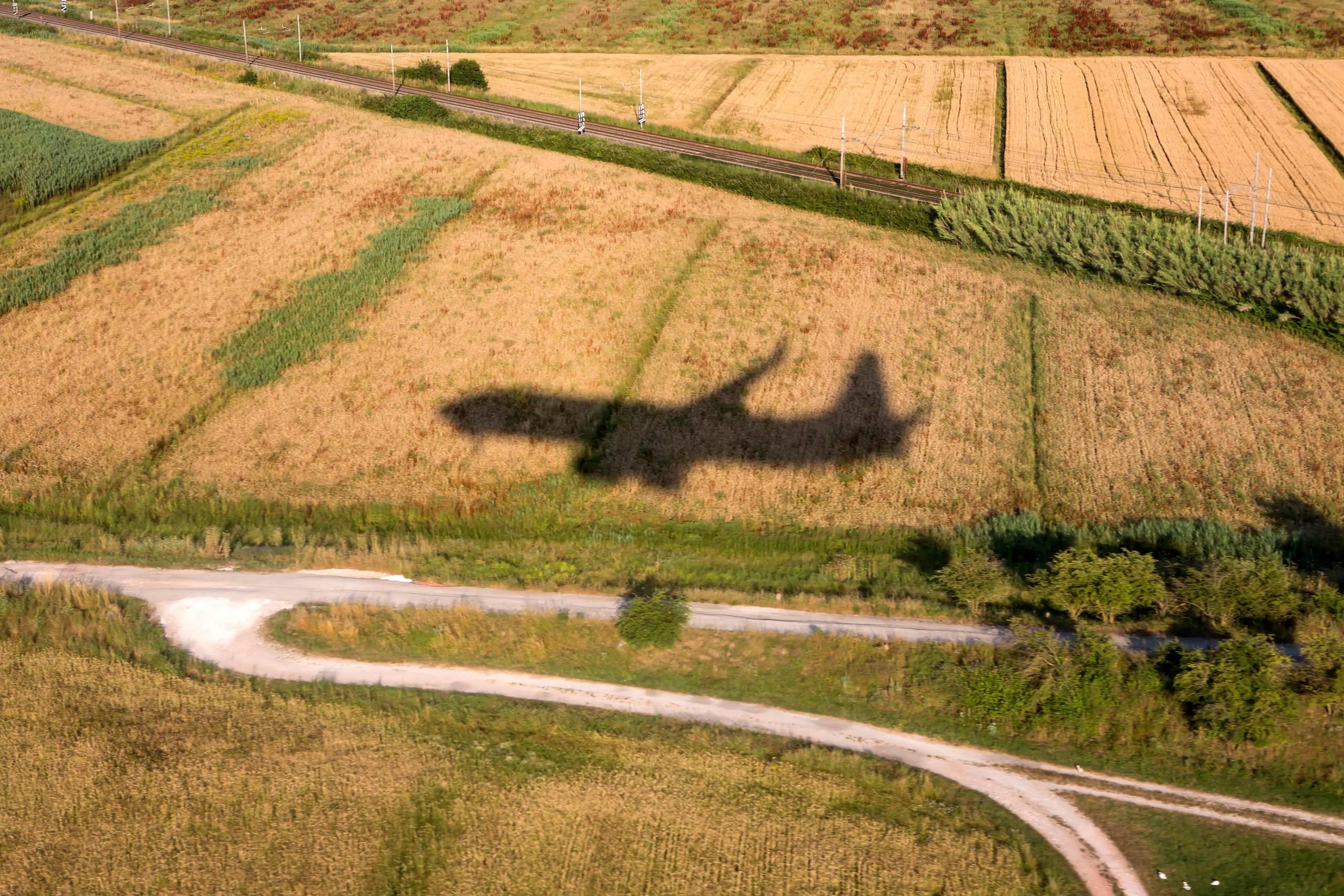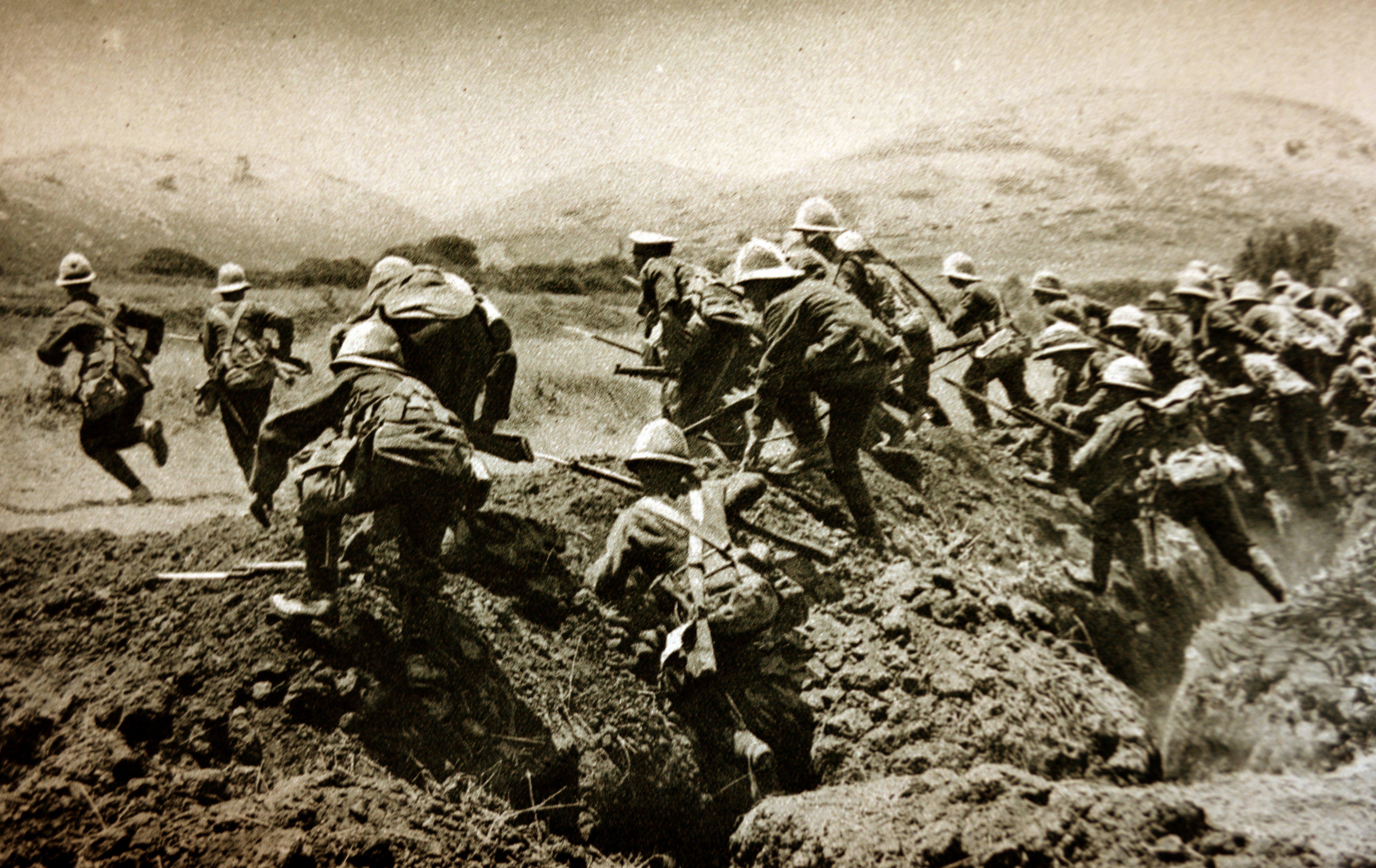Jonathan Self: 'To be in a foreign country is thrilling. Everything is new. One is constantly on one’s mettle. It is like being a child again'
Jonathan Self's scuppered plans force him to reflect on how the joy of travel mixes with the delicious ambivalence of wanting to go home.


When the captain announced, a little after midnight, that our flight from Pisa to Cork, which should have taken off at 10pm, would now be leaving at 7am and that we would have to disembark, I was secretly rather pleased. I rang all the local hotels — not a room to be had — established that we’d see Ireland before we’d see a taxi, built a redoubt in the departures concourse using our luggage (we are not a family which travels light), ordered Oliver to take the first watch and ventured outside to reconnoitre.
Why did I find the whole situation, well, enjoyable? It isn’t that I like to see my fellow man suffer, far from it, but I won’t deny that I am interested in people’s reactions (mostly stoic, sometimes petulant, occasionally histrionic) when confronted by a relatively minor inconvenience. The benefit of a little discomfort is that it serves as an excellent reminder of how lucky one is and, when it is over, one appreciates what follows.
Half the pleasure of a bitterly cold winter tramp, after all, is thawing out afterwards in front of the fire. I am grateful for any unexpected, but essentially benign event that forces me out of my rut. I find it stimulating. To my mind, it isn’t adventure that is dangerous, but routine. Also, and perhaps this is the closest to the truth, I am fascinated by what happens overnight in places generally associated with daytime activity.
Over the years, I have gone without my beauty sleep to watch the comings and goings of an African mine, a New York police station and a Tibetan temple — to offer only three examples — but never an airport. If you are going to pass the hours of darkness loitering in an airport, by the way, Pisa has much to recommend it. Its south and east sides are abutted by vineyards, orchards and fields.
"The only restaurant had run out of everything, even coffee"
Ten minutes’ walk from the terminal found me on a narrow country lane breathing in the warm, herb-scented air and keenly aware of the dark, the bats and the silence. It had originally been my idea to find somewhere to sleep, but after settling myself under a tree, I suddenly remembered there are four types of poisonous snake in Italy and, somehow, movement seemed preferable.
Before not taking off, I had been reading William Atkins’s excellent new book on exiles (Exiles: Three Island Journeys) in which he suggests that the main cause of unhappiness may not be loneliness, as he had always assumed, but a desire to be somewhere else. According to him, there is a conflict between leaving and staying that seems to animate the world.
As I peered through the chainlink fence at the parked aeroplanes, I contemplated my own restlessness. I love our home in Ireland and, when I am away from it, I am often filled by a desperate yearning to return. ‘It is a kindness,’ as Ovid remarked, ‘that the mind can go where it wishes.’
Exquisite houses, the beauty of Nature, and how to get the most from your life, straight to your inbox.
Yet, at the same time, to be in a truly foreign country is thrilling. Everything is new. Understanding little or nothing, one is constantly on one’s mettle. It is like being a child again. I wanted to get home. I wanted to stay.
In my absence, the airport had taken itself to bed. Some slept; others read or scrolled on their phones. The only restaurant had run out of everything, even coffee. Cleaners tiptoed around, emptying bins. I waited for the ticket desk to open and reminded an exhausted Charlotte that to travel hopefully is a better thing than to arrive.

Jason Goodwin: The madness of Gallipoli, and the British officer ordered to fight the men who once honoured him
After years of regular visits to Turkey, Jason Goodwin finally makes it to Gallipoli where he is humbled and sobered

Jason Goodwin: The ruins 7,000 years older than Stonehenge which overthrow the way we think about our common past
If you're visiting somewhere extraordinary such as Göbekli Tepe, don't snap away on your phone — take a sketchbook. Jason Goodwin
After trying various jobs (farmer, hospital orderly, shop assistant, door-to-door salesman, art director, childminder and others beside) Jonathan Self became a writer. His work has appeared in a wide selection of publications including Country Life, Vanity Fair, You Magazine, The Guardian, The Daily Mail and The Daily Telegraph.
